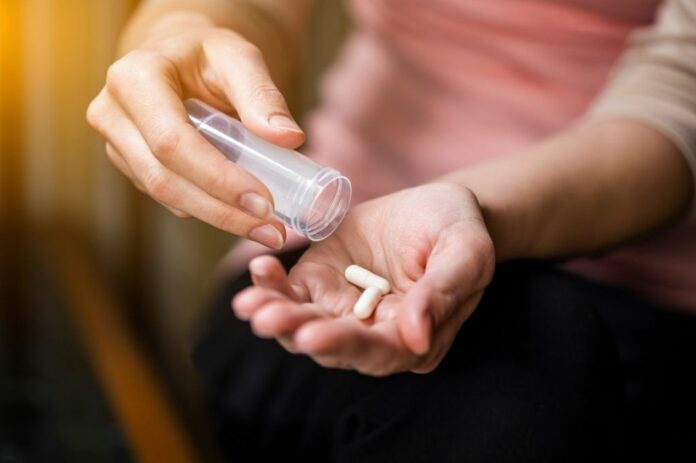Early in the pandemic, a medicine being used by COVID-19 patients to manage acid reflux grabbed the attention of major health professionals. When former President Donald Trump’s physicians mentioned the medicine that assisted him in recovering from COVID-19, their interest was sparked once more. So much so that one of the largest investigations of this mysterious over-the-counter drug has been conducted, yielding some intriguing results.
A review of COVID-19 survivors’ medical records found that a sizable proportion of people treated for the condition also suffered from chronic heartburn.
Interestingly, most were taking an affordable OTC medication called famotidine.
Interest in the medicine grew during the pandemic after doctors in Wuhan discovered that while one in five COVID-19 patients over the age of 80 died, many survivors used heartburn pills.
The drug’s active constituent is Pepcid, and experts are wondering if this could explain why so many people survived COVID-19.
This is how many medical research begin, according to Phil Bourne, a biomedical engineering professor and founding dean of the School of Data Science.
“There’s often a phenomenon that doctors report anecdotally, or that’s mentioned in passing in a particular research paper, and that provides a clue — a hook,” he said.
Wuhan doctors noticed that the poorer elderly had a greater survival rate due to their medicine choice.
The needy patients took famotidine, marketed in the United States and the United Kingdom under the brand name Pepcid, since it was less expensive than omeprazole, marketed under the brand name Prilosec.
In a review of 6,212 medical records, doctors in China discovered that just 14 percent of elderly persons taking famotidine died, while 27 percent of elderly people taking omeprazole died.
According to scientists, famotidine binds to the papain-like protease, an enzyme that assists viruses in multiplying in the body and prevents them from replicating.
Bourne and senior scientist Cameron Mura of the University of Virginia collaborated with a worldwide team of researchers to analyze data from a database including the medical records of millions of COVID-19 patients living in 30 different nations.
The researchers then reduced that number to approximately 22,000 people, the largest sample size ever used in a study of famotidine and disease.
“The power of the electronic health record, which is really yet to be fully realized as a research tool, is that you’ve suddenly got all this data you can mine to see whether what you determined in passing or anecdotally has any basis,” Bourne said.
The team’s findings were published in the journal Signal Transduction & Targeted Therapy. They discovered that when famotidine is administered in large dosages, it appears to improve the odds of survival for COVID-19 patients, particularly when paired with aspirin.
Additionally, the study discovered that famotidine helped in reducing the severity of the new virus, hence decreasing the risk of requiring a ventilator.
Concerning why it works, scientists believe it may be because of the cytokine storm.
When a person becomes ill, his or her immune system produces inflammatory proteins called cytokines, which instruct the immune cells to begin fighting the infection.
Cytokine production, on the other hand, tends to spin out of control in severe disorders such as COVID-19.
The team hypothesizes that famotidine inhibits this process.
By combining famotidine with aspirin and using exceptionally large sample size, the team’s study revealed additional light on a potentially inexpensive and safe medication that clinicians might easily prescribe.
In the midst of a global health crisis, the study also established critical groundwork for future research.
“Scientific studies are sometimes viewed as the end-all, be-all, but they’re really just a starting point or a springboard,” Mura said.
“Any good study raises more questions than it answers, and data science is often what kick-starts that process.”
Image Credit: Getty
